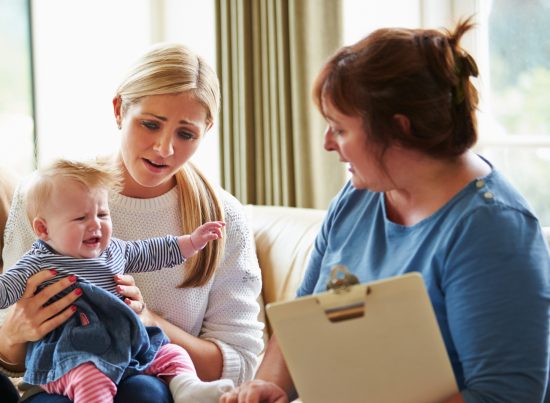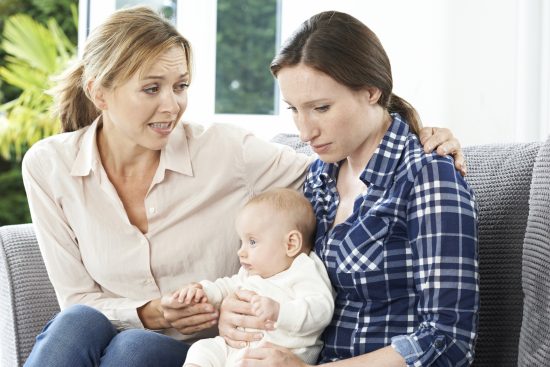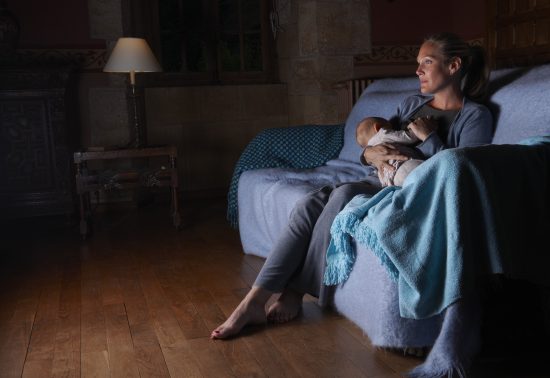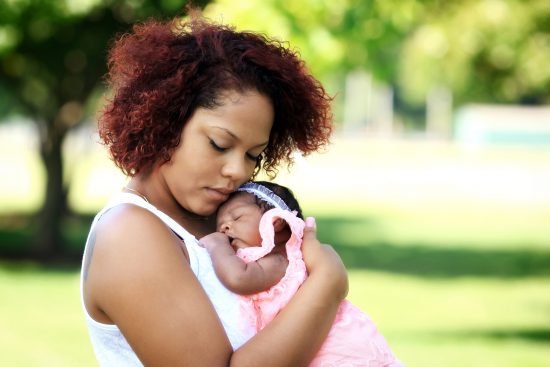Maria Bavetta, co-founder of charity Maternal OCD, explains what maternal OCD is, how to spot the signs and what treatment and support is available to mums who experience it.

During pregnancy and early motherhood we’re told repeatedly about the physical changes and checks we can expect, but not so much about potential emotional changes.
We all know that we’ll have our blood pressure and urine checked, be offered ultrasound scans, and that our baby’s heartbeat may need to be monitored – so why don’t we hear more about checking up on our emotions?
There are three main parts to maternal OCD, according to the Royal College of Psychiatrists:
1. Thoughts or images that keep coming into your mind – obsessions.
2. Anxiety – usually as a result of the obsessive thoughts.
3. Thoughts or actions you keep repeating to try to reduce your anxiety or prevent something bad from happening – compulsions.
Obsessive Compulsive Disorder (OCD) is an anxiety disorder and recent studies suggest that OCD is more common in pregnancy and after having baby.
Some people develop OCD for the first time either during pregnancy or afterwards, whilst others find that pre-existing symptoms worsen.
This increase in the incidence of OCD is likely to be related to the fact that pregnancy and early parenthood is a time when mums are naturally focused on the safety of their developing child and feel particularly responsible for them.
The normal stress and uncertainties of becoming a parent can also play a role.
It’s possible to get perinatal OCD whether or not you’ve had OCD before.
It’s therefore so important that mums are forewarned – and forearmed – in case perinatal OCD occurs.
These are unwanted thoughts, images, urges or doubts. These happen repeatedly and can make you very distressed. These can include:

Women suffering with perinatal OCD are not at risk of acting on their thoughts, but it can of course be very scary.
You may feel anxious, fearful, guilty, disgusted or depressed. You feel better if you carry out your compulsive behaviour, but this doesn’t help for long.
You might constantly seek reassurance by asking others to tell you that everything is alright over and over again.
These are things you might do in order to reduce your anxiety or to try to prevent the things you fear from happening:
At Maternal OCD, we receive many emails like the following from mums:

‘Dear Maternal OCD, I’m terrified, overwhelmed, confused, unsure how to be a mum, frightened to tell anyone my thoughts and scared my baby might be taken away. I can’t stop my thoughts tumbling and repeating over and over again.
I’ve no strength to fight the compulsions and don’t understand what’s happening. I just want to be the mum I want to be. I feel sick and just want this to end. I can’t bear not being able to be ordinary. Please help me.’
There is support and help out there. Perinatal OCD can be treated with cognitive behaviour therapy (CBT) and/or medication. One study looked at how well intensive CBT worked on mums with OCD.
Getting treatment early is likely to benefit mums.
It showed that a short two-week course of 12 hours of CBT could help women significantly reduce their symptoms and that this effect was lasting, even among mums with longstanding difficulties.
The key message is that with the right help OCD is a treatable problem. Getting treatment early is likely to benefit mums and help them to enjoy time with their babies.
Maternal OCD’s patron, Dr Fiona Challacombe, researched the features and experiences of postnatal OCD and compared them with the experiences of mums without OCD in a study at King’s College London.
Although women with OCD are often in the grip of significantly distressing and time consuming symptoms, the research found that it does not seem to interfere with bonding with their babies.
This is important as often women feel that these unwanted obsessions or compulsions mean something bad about them as a person.

The research also confirmed that women who did not have OCD also occasionally experienced the same unwanted thoughts and compulsions.
However they were not distressed by them, and did not attribute the same significance to them.
Many other studies have also confirmed that intrusive thoughts of all kinds are normal occurrences.
Several women in the study reported experiences of misdiagnosis and misunderstanding from health professionals. A wider awareness of perinatal OCD is therefore very important.
Diana Wilson, co-founder of the Maternal OCD charity, shares her top tips for recovery:
There is support and help out there. Perinatal OCD can be treated with cognitive behaviour therapy (CBT) and/or medication.

We hope that in time we will receive more emails like this from people who have been helped:
‘Dear Maternal OCD, thank goodness my antenatal classes explained that my mind can change like my body during pregnancy. I went to my GP as soon as I recognised that my thoughts were upsetting me more than I think they should.
I was referred for CBT and it’s really helping. I’d still like some support from a mum who has gone through this and come out the other end because it’s difficult and I need hope so that I can get better.’
Maternal OCD shares information and raises awareness of what perinatal OCD is and how it can be treated so women know what to look out for and that help is available. We also need to ensure healthcare professionals know this is one of many perinatal mental health problems – and that it can be treated with specialist support.
You can call OCD Action on 0845 390 6232.
There is lots of information about different mental health issues during pregnancy and after birth on NCT’s website.